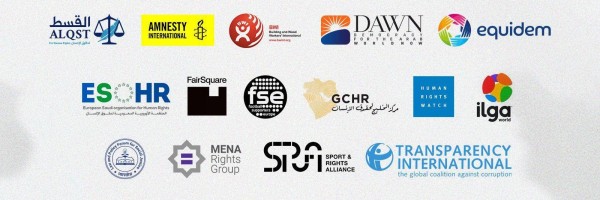Saudi Arabia currently holds the rotating presidency of the Group of 20 largest world economies. In the months leading up to this year’s G20 summit in November, the Saudi kingdom will want to maximise the PR opportunities to expand its economic influence and attract foreign investment. Hosting the G20 summit is in fact part of a much larger global public relations offensive pursued by Crown Prince Mohammed bin Salman, aimed at whitewashing the kingdom’s image and glossing over its appalling human rights record.
While the Saudi authorities like to portray the country as striving for reform, invoking its economic Vision 2030 and prestigious projects like the megacity of NEOM, no one should forget that a genuine effort to reform or modernise would incorporate the ethical dimension of human development and a commitment to basic rights and freedoms. Only then might the stated goal of Saudi Arabia’s G20 presidency, of “realising opportunities of the 21st century for all”, be achieved.
Yet the Saudi authorities continue to violate many of the most basic human rights, including the right to freedom of expression and peaceful assembly; the right to liberty and security of person; the right to freedom from torture and other cruel, inhuman or degrading treatment; and indeed the very right to life.
Since the self-styled “reformist” Mohammed bin Salman came to power in 2017, the country has witnessed a harsh crackdown on any and all critical voices in sweeping waves of arrests, including the detention and brutal torture of women human rights defenders, as well as ongoing detention and unfair trials for a vast number of prisoners of conscience, in addition to the gruesome murder of journalist Jamal Khashoggi and the immense loss of civilian life caused by the war in Yemen.
Governments and businesses must not turn a blind eye to the Saudi authorities’ egregious human rights violations simply in the interests of diplomatic and commercial ties. They should realise that the absence of civil liberties in Saudi Arabia, together with the large-scale commission of grave human rights abuses, creates a high-risk environment for the investment of both economic and political capital.
ALQST is therefore launching a campaign to highlight how the Saudi authorities violate the most basic human rights, and to mobilise people around the world to urge G20 participants and governments to place human rights at the centre of all G20 discussions. Each month in the run-up to the G20 summit in Riyadh in November, ALQST will make a different human rights concern the focus of its campaigning on social media. We will do so in collaboration with other NGOs and encourage all our partners to join in.
Preview of campaign topics:
June – The systematic practice of torture in Saudi Arabia (26 June: International Day in Support of Victims of Torture)
July – The situation of detained human rights defenders and prisoners of conscience
August – The war in Yemen (19 August: World Humanitarian Day)
September – The kafala system and labour rights (7-8 September: L20 – the G20 Labour Summit)
October – Business practices and the Saudi “war on corruption” (26-27 October: B20 – the G20 Business Summit)
November – Impunity for crimes against journalists and mass surveillance (2 November: International Day to End Impunity for Crimes Against Journalists; 21-22 November: full G20 Summit)




